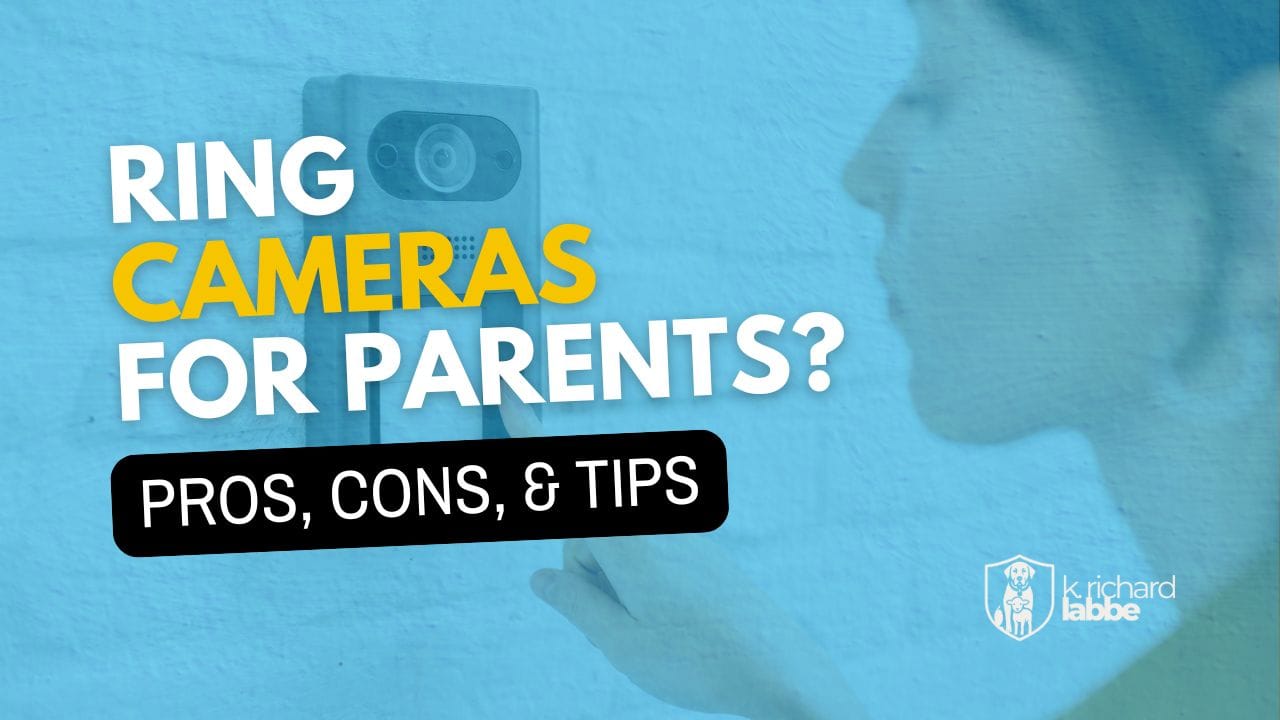Should My Parent Have a Ring Camera? Pros, Cons, and Tips
A Ring or similar smart camera can offer real peace of mind for aging adults—but only if it’s the right fit for their needs, abilities, and comfort level. Let’s walk through what to consider and how to set it up wisely.

Why This Is a Real Question—Not Just a Tech Trend
It’s tempting to treat this as a simple yes or no.
Ring cameras are everywhere. They're affordable, easy to install, and can notify you the moment someone walks up to your door. For many families—especially those helping aging parents live independently—they feel like a no-brainer.
But smart cameras aren't just tools. They're portals—for safety, yes, but also for anxiety, confusion, and even potential privacy concerns. Before you buy one for your parent or suggest adding it to their porch, it’s worth asking a few deeper questions.
Not “Is this cool?”
But: Will this genuinely help them? Will it bring peace, or will it bring more pressure?
The Pros: When a Ring Camera Can Be a Gift
Let’s start with what smart cameras like Ring, Blink, or Nest can do well—especially for seniors.
1. They provide awareness without confrontation.
A Ring camera lets your parent see who’s at the door without having to answer it. That’s especially helpful for those who live alone, move slowly, or feel uncomfortable opening the door unexpectedly.
2. They discourage unwanted visitors.
The simple presence of a doorbell camera often makes scammers, thieves, or aggressive solicitors think twice.
3. They help you check in—without hovering.
If your parent agrees, you can receive alerts and video clips too. That way, if a suspicious visitor comes by or your parent misses a package or forgets to lock the door, you can quietly help behind the scenes.
4. They create a visual record.
If there’s ever a package theft, a service dispute, or a safety concern, the video footage may help.
When used well, a smart camera can extend a parent’s independence. It helps them stay alert and in control—not dependent or afraid.
The Cons: When a Ring Camera Might Create More Stress Than Safety
Like any tool, smart cameras can be misused or misunderstood. Here are a few concerns to weigh carefully.
1. They can cause unnecessary anxiety.
Some seniors—especially those already prone to worry—may start checking the app constantly, or become overly fixated on every motion alert, bird, or passing neighbor.
2. They can feel intrusive if not handled with care.
If adult children are watching every visitor, it can feel less like support and more like surveillance. Always talk it through and respect your parent’s autonomy.
3. They require tech familiarity.
Even the simplest camera setup involves app permissions, Wi-Fi troubleshooting, notification settings, and occasional updates. If your parent isn’t comfortable with their phone or tablet, someone will need to manage that part.
4. They’re not a guarantee of safety.
A camera won’t prevent crime. It just records what happens. It’s still important to practice good habits—locking doors, ignoring unsolicited callers, and staying connected to trusted neighbors and family.
5. They may come with ongoing costs.
Some devices require a subscription to save footage or access key features. Make sure you—and your parent—understand any monthly or yearly fees before committing.
How to Decide—Together
If you’re wondering whether this is the right move, start by asking:
- “Would this make you feel safer or more stressed?”
- “Would you be open to using a camera if I helped manage the tech part?”
- “Do you want to be notified every time someone’s at the door—or would you rather check when you feel like it?”
Let your parent lead. If they say no, that’s okay. And if they’re unsure, try a short-term experiment:
Use your own account, walk through the features together, and make a decision as a team.
You might frame it like this:
“I’m not trying to watch over you—I just want to make sure you’re not facing every door knock alone.”
This isn’t about control. It’s about partnership.
If You Do Install One, Set It Up Wisely
Here are a few calm, dignity-honoring tips for setup and use:
- Keep it visible. That alone can deter scammers or intruders.
- Adjust the motion settings so your parent isn’t overwhelmed with alerts.
- Help them learn the basics—how to check video, how to mute notifications, and how to tell if the camera is working.
- Respect their privacy. Don’t comment on every delivery or visitor. Step in only when something seems concerning.
- Use it to start conversations, not end them. If a suspicious person came to the door, talk about it together. What felt off? What might we do differently next time?
And don’t forget digital security:
- Change the default password. Use a strong, unique password that isn’t shared with other accounts.
- Enable two-factor authentication. This adds an extra layer of protection and makes it much harder for someone to access the device remotely.
- Review who has access. Make sure only trusted people are on the account—and remove any old or unnecessary users.
- Be mindful of where the camera points. In close-knit neighborhoods, it’s wise to avoid facing directly into a neighbor’s yard or window to prevent unnecessary tension.
Do This Today
If you’re thinking about a Ring or similar device for your parent, start with a simple step: a conversation.
- Ask what would help them feel more in control.
- Talk about what they’re already doing right.
- Let the tech serve the relationship—not replace it.
And if you’ve already installed one:
- Take 10 minutes this week to check the settings
- Make sure the app isn’t creating stress
- Double-check security features like passwords and account access
Final Word: Prepared, Not Paranoid
This isn’t about spying or micromanaging.
It’s about helping the people we love stay safe, aware, and independent—without unnecessary fear.
Prepared, not paranoid. That’s how we build peace, one tool at a time.
Stay safe. Be ready. Online and off.
Every effort has been made to ensure the accuracy and reliability of the information presented here. While Labbe Media, LLC strives to offer clear, well-researched guidance, this content is intended for educational purposes only and isn’t a substitute for professional advice tailored to your situation. We encourage you to use this material as a starting point—and to double-check details and consult trusted professionals when making important decisions.
